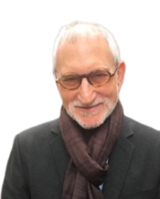For most of us, illness is a nuisance. We develop a fever, experience aches and pains, and feel fatigued. We take to our beds, drink lots of fluids˘–especially chicken soup. After a few days, we regain our energy. Our temperature returns to normal. The aches and pains subside. In short, we return to the steady state of good health–the absence of illness from our bodies.

Our take on illness has a
long history. Many of our attitudes about illness probably emerged from the deep-seated belief that human beings can conquer nature, a conceit that has been the philosophical foundation of capitalism. The same notion has shaped the immunological approach to illness and health. (See Napier 2003). From an immunological framework illness is an enemy, an invader that must be conquered, which is why commentators use metaphors of war to discuss chronic disease. Medical scientists have long been engaged in the war on cancer. In this powerful metaphorical arena, cancer patients are expected to bravely battle their disease. If they make it through the minefields of surgery (excise it), radiation (burn it) or chemotherapy (poison it), they become “survivors,” who, having suffered the considerable privations of treatment, are supposed to go back to a previous life in which thoughts of illness dissipate into the ether of “normal” life. Illness once again becomes a temporary nuisance.
The survivor story is a compelling narrative that places profound stress upon any person confronting an illness for which there is no cure, for which there is only remission—a place between illness and health. Millions of people, who live in what the sociologist Arthur Frank (1995) calls “the remission society,” may feel lonely and maligned. Following the folk beliefs of mainstream society, healthy people are considered strong and vital. They are winners. When sickness briefly interrupts their lives, they master their illness and progress forward—the conquest of disease. The chronically ill, by contrast, are considered weak and indecisive. They are losers. When their chronic conditions persist, they fail to defeat their illness.
How can a healthy person understand what it is like to be caught between health and illness, to be one test result away from a slow (or rapid) decline toward death? Such in-betweeness can be alienating; it can bring on feelings of guilt and depression. It can also lead to denial and anger, states of being that can waste precious quality time in periods of symptom free remission.
From the standpoint of the chronically ill patient this folk orientation toward illness seems cruel and misguided. In many non-Western societies people consider illness like an uninvited companion. The companion may leave your house for a period of time, but eventually returns. In the Republic of Niger, the poorest country in the world, people confront disease and death the same way they confront the power of nature–with deep respect. During my apprenticeship among West African healers in Niger, the elders liked to tell me that a person can never defeat illness or defy death. (See Stoller 2004, 2014) It is better to accept the limitations (being diagnosed with an incurable cancer) and live fully within those limitations. Denial fuels an anger that consumes precious time, which, for all of us, is in short supply. They told me that illness can be a powerful force for personal change. They taught me that healers learn how to heal through the body—through the experience of illness, which, in turn, gives clarity to their own lives and sensitizes them toward others.
Accepting the limits that illness dictates to us is never easy, especially for those of us who live in a society shaped through a paradigm that champions the conquest of nature. It was certainly difficult for me. Even so, I found that living with my illness companion, non-Hodgkin's lymphoma, compelled me to rearrange my priorities as a person and a scholar. As a person I came to appreciate more deeply the close supportive bonds of family and friends. As a scholar, I became a less competitive and more deeply committed to mentorship—seeking opportunities to pass on what I’ve learned to the next generation. My writing also shifted from terse academic discourse to sensuously contoured narratives that attempt to highlight the wondrous and ever-shifting complexities of the human condition—all in the hope of increasing the human connection between a writer and his readers.
There is no perfect way to confront illness. Many of our reactions to the challenge of illness are shaped culturally through the ever-present illness-as-enemy metaphor. But if you respect the steadfast power of illness in your life, it can be the foundation for unanticipated growth and unexpected development. Following the wisdom of my West African mentors, if you respectfully open your being to the world, you can learn a great deal about yourself and others.
Illness is a great teacher.











No comments:
Post a Comment